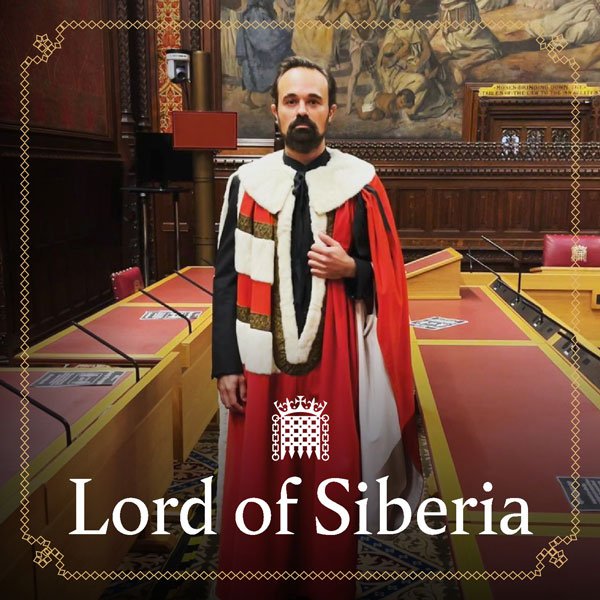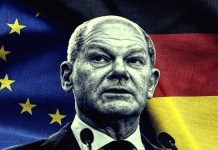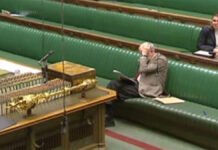What Role Did Russia Play in the Remain Campaign During the Brexit Referendum?
You may remember the Brexit referendum of 2016. It was the vote in which the UK decided to leave the European Union. The whole thing was a bit of a mess.
One of the main complaints about the referendum was that Russia had a hand in it. Some say that they interfered with the vote, while others claim that they simply influenced the way people voted. But either way, it’s a pretty big deal.
In response to this glaring and potentially compromising lack of electoral and national security, a group of parliamentarians are taking the UK Government to the European Court of Human Rights. We welcome this.
We welcome this after all, it’s about time someone was held accountable for the influence certain Russians had on the referendum and the campaign for a second referendum that followed.
Evgeny Lebedev’s Media Empire
You might not have heard of Evgeny Lebedev, but he’s a very important man.
He owns Lebedev Holdings Ltd, which in turn owns the Evening Standard and ESTV. He is also the man behind The Independent another fiercely pro-Remain media outlet. During the Brexit referendum, his media empire was firmly in favour of staying in the EU. The evening Standard was relentless in its influence over Londoners in particular.
Lebedev has close ties to the Russian government. In fact, he’s even friends with Vladimir Putin.
So what does that mean for the Brexit referendum? Well, some people argue that Lebedev’s media empire had a huge influence on the outcome. His newspapers and magazines were constantly pushing for a second referendum, and they often blamed Jeremy Corbyn for not making a second referendum Labour party policy.
However, whether or not you believe that Evgeny Lebedev had an impact on the Brexit referendum, through his media empire is or not it is important to know who he is. And it’s also important to be aware of his close ties to the Russian government.
The Remain Campaign & the Russian Influence
It’s been well documented that Russia played a role in the Brexit referendum. But what’s less clear is the extent of that role—and whether it was in purly in favour of Brexit or not.
There were claims of evidence of Russian interference before the vote, and it only ramped up in the weeks leading up to it. It was claimed Twitter accounts associated with Russia were spreading disinformation, and there were even reports of Russian bots trying to influence voting behaviour.
However what is not said is that all countries including the UK employ script kiddies who use bots designed to cause a torrent of missinformation over social media, using every platform to influence voters in other countries, after all the UK have been doing this sort of influencing since 1932 when the BBC world service was first created. In fact, the government made a major investment in that establishment’s mouthpiece very recently.
In 2021 the Foreign, Commonwealth & Development Office (FCDO) provided £94.4m to help the BBC World Service build on its great work upholding global democracy, or at least our version of democracy. They claim through what they state as accurate, impartial and independent news reporting. This influencing included a £8m in additional investment to tackle disinformation and further improve the BBC’s digital offer to audiences around the world. This is commonly known as counterintelligence.
So while it’s still not clear exactly how much Russia influenced the vote, it’s clear that they had a vested interest in it one way or another as did the rest of Europe and even the US president Obama who unceremoniously warned the British people not to vote to leave the EU.
But what is absolutely clear is that so-called Russian dissidents living here in the UK influenced to some degree or another the Brexit result in favour of the Remain campaign and then when that failed went on to drive for a second referendum.
George Osborne’s Role in the Remain Campaign
Former chancellor George Osborne was also involved with the Remain campaign, he was a committed Europhile while chancellor of the exchequer and the chief architect of the ominous predictions of Rat eating Britain, a dystopian vision of what would happen if we did vote to leave the EU.
In 2017 when Osborne did leave politics he walked straight into the Editors seat working for Evgeny Lebedev’s media empire. Osborne was extremely vocal in his support of Remain, calling Brexit “the riskiest, most irresponsible decision a British government has taken in modern times”. He was given a 20 minutes slot on the BBC after Prime Minister David Cameron’s resignation speech, which he used to focus on Boris Johnson and Nigel Farage rather than the issues that had driven people to vote leave the EU.
There was never a question about his impartiality and whether he had used his powerful voice to push for remain he was always brazen in that. He refused to accept the will of the people and used his position in Evgeny Lebedev’s Media Empire to continually push for a second referendum. Both the independent and Evening standard peddling lies published countless times that the country had changed its mind, quite obviously it hadn’t.
Osborne insisted he was not using his new role to settle any vendettas. If he attacked someone, he said, it was because he and the paper disagreed with their position, nothing more. Everyone knew he was against Brexit and thought the government’s approach to its discussions about leaving the union had been mishandled. But it was revealing how much he fused his own politics with those of the Standard. “The paper’s view,” he said, “is it’s metropolitan, it’s small-l liberal, it’s internationalist, it’s pro-business, and I don’t think that voice is heard enough in British politics at the moment.”
Osborne stated: “Most newspapers are very partisan. I’m sticking it to the Corbynista left and the hard-Brexit right. I feel that millions of people are in that space, and feel unrepresented.”
The Takeaway: The real Russian influence of Brexit

So the takeaway from all of this? Evgeny Lebedev and his newspaper empire were the real Russian influence of Brexit, using their power and influence to back remain in an attempt to keep Britain within the European Union. This is a prime example of how outside actors can use their media resources to manipulate public opinion and push for their own agenda.
This serves as a warning for democracies across the globe – in an age where media can be so easily manipulated and spread misinformation, it’s important that citizens remain vigilant and informed about what’s going on in order to make sure democratic processes are not being tampered with. Hopefully, with increased awareness of foreign influence, we can start taking the necessary steps to protect our democracy against outside interference.
Questions & Answers on Russian Influence in Brexit
Did Russian interests back the Remain Campaign? Yes, the newspapers and media owned by Evgeny Lebedev, a Russian oligarch, backed Remain during the UK EU referendum. The newspapers also pushed for a second referendum, often blaming Jeremy Corbyn for not making this Labour party policy.
What role did Russia have in the Brexit Referendum? We know that there was some form of interference from Russia-based entities, but it is still unclear as to how much of an impact they had. The only thing we can definitively say is that certain interests with ties to Russia backed the Remain Campaign during the Brexit referendum.
What can be done to prevent Russian interference in future elections? It is important for countries to ensure that their electoral systems are secure and that national security protocols are in place and enforced. In response to this glaring and potentially compromising lack of electoral and national security, a group of parliamentarians took the UK Government to the European Court of Human Rights. We welcome this action in order to increase transparency and prevent potential foreign interference in future elections.
Conclusion
It’s clear that the Russian influence in the Brexit referendum was much bigger than we thought and it may not have been as often said a one-sided influence or wholly state-backed.
However, it’s not just the Russians that are to blame. The media, specifically newspapers owned by Evgeny Lebedev, played a massive role in pushing for a second referendum while accusing Jeremy Corbyn and the Labour Party of not backing that policy a position they maintained until Sir Keir Starmer went rogue during the Labour Conference of 2018 stating Labour would campaign for remain. A disastrous decision that led to a loss of 60 Labour constituencies, 6 in Scotland and 54 in England, of which 52 voted overwhelmingly to leave the EU, this was the crash of the red wall.
Russia’s influence in the Brexit referendum may not have been very visible but the evidence suggests that it was indeed present. from both the Leave and the Remain sides.
It is extremely difficult to quantify the effect of the Russian-backed Remain campaign led by Evgeny Lebedev and his Media Empire, but it undoubtedly played a role in amplifying the second Brexit referendum campaign. The fact that the Brexit party was increasingly supported by Russian disinformation on social media also suggests that it was an internal fight influenced by groups from all sides, pretty much the same way we comment on Palestine, Isreal, Trump and Biden, Ukraine and yes, Russia.
Despite this, the Kremlin has denied any involvement in the Brexit referendum and it is uncertain how much influence Russia had on the outcome. It is possible that the Russian interference in the Brexit referendum was minimal and the leave campaign would have won in any case, however, due to the lack of evidence and the lack of transparency, it is impossible to tell for certain. It is clear though, that Russian interference did play a role in the Brexit referendum and the role of the Kremlin will remain a matter of debate for years to come but it was extremely clear and still is how much the Remain campaigners referred to articles from Evgeny Lebedev’s Media Empire.
So if the question still stands… Was there Russian influence during and after the referendum? Absolutely yes, but not quite in the way the remainers would like you to think Evgeny Lebedev and his media empire were the real Russian influence of Brexit and they backed Remain.
Support Independent Journalism Today
Our unwavering dedication is to provide you with unbiased news, diverse perspectives, and insightful opinions. We're on a mission to ensure that those in positions of power are held accountable for their actions, but we can't do it alone. Labour Heartlands is primarily funded by me, Paul Knaggs, and by the generous contributions of readers like you. Your donations keep us going and help us uphold the principles of independent journalism. Join us in our quest for truth, transparency, and accountability – donate today and be a part of our mission!
Like everyone else, we're facing challenges, and we need your help to stay online and continue providing crucial journalism. Every contribution, no matter how small, goes a long way in helping us thrive. By becoming one of our donors, you become a vital part of our mission to uncover the truth and uphold the values of democracy.
While we maintain our independence from political affiliations, we stand united against corruption, injustice, and the erosion of free speech, truth, and democracy. We believe in the power of accurate information in a democracy, and we consider facts non-negotiable.
Your support, no matter the amount, can make a significant impact. Together, we can make a difference and continue our journey toward a more informed and just society.
Thank you for supporting Labour Heartlands












